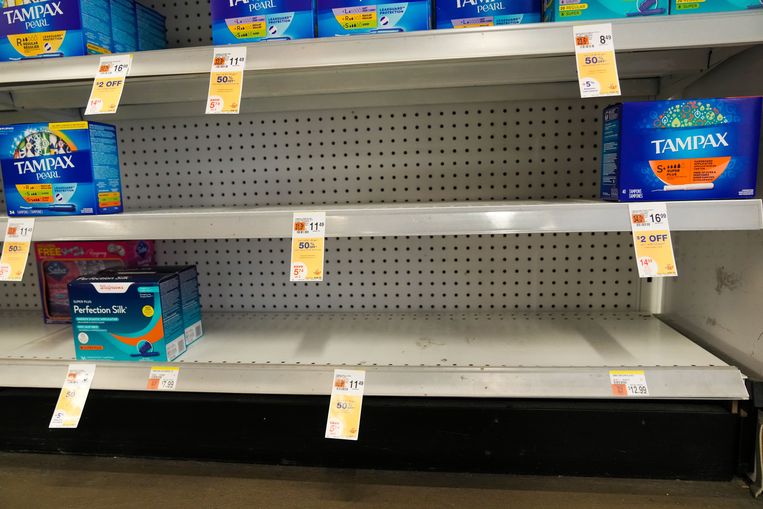American women have been complaining on Internet forums about empty shelves in the tampon department since at least April. But only then Time Published an article about it in early June, the deficit became a subject of public debate. Manufacturers have sadly admitted they can’t keep up with demand, and companies that distribute tampons to low-income groups say they don’t receive enough donations to meet everyone’s needs.
The tampon shortage is the umpteenth episode in the global supply crisis since the coronavirus pandemic. The reasons are now well known: America itself does not produce enough raw materials such as cotton, viscose, and plastic, all of which are needed to make mouth caps. Also, international freight traffic continues to face bottlenecks. So raw materials don’t get to America as fast, and the pandemic costs significantly more than before.
There is also a severe shortage of truck drivers in the U.S., which adds to supply problems. To make matters worse, some tampon factories in Canada and the United States had to close temporarily due to the Omicron wave in the spring, and those factories are also suffering from labor shortages.
Hard blow
What makes the shortage of tampons so painful is that they fill a need that simply cannot be postponed or planned for. Recent media attention on tampon shortages has urged some women to stock up. According to US grocery app Instacart, searches for tampons were up 13 percent last week from the week before, and the company’s shoppers were only able to fulfill two-thirds of orders.
The economic law of shrinking supply and growing demand also hit here: According to Bloomberg, tampon prices rose 9.8 percent year-over-year in May. The price of sanitary towels also increased by 8.3 percent. It’s a particularly hard blow to poor Americans. By 2021, more than 11 million of them will already be struggling to pay for their menstrual products, with half of them forced to choose between menstrual products or food.
This makes it all the more surprising that the deficit has been under the radar for so long. Some say part of the problem is that most of the CEOs and politicians who need to solve this problem are men. The US government was also too late when it came to infant formula shortages.
Meanwhile, politics seems to have shaken: Senator Margaret Wood Hassan wrote a letter to the CEO of Procter & Gamble in which she argued that ‘access to menstrual products should be treated like any other essential product’.







